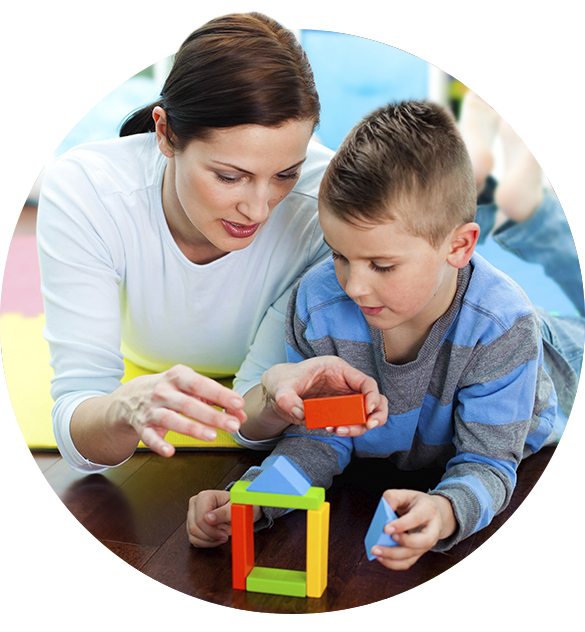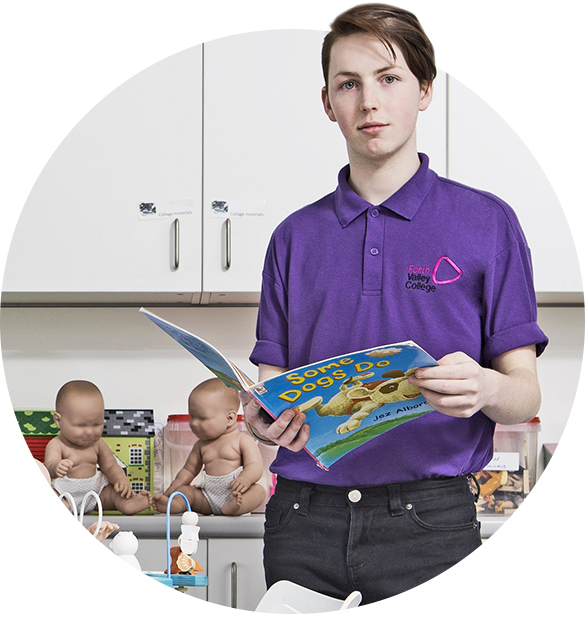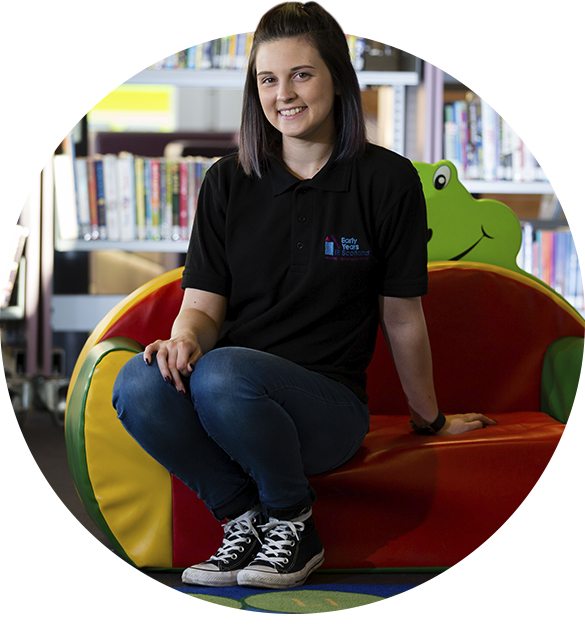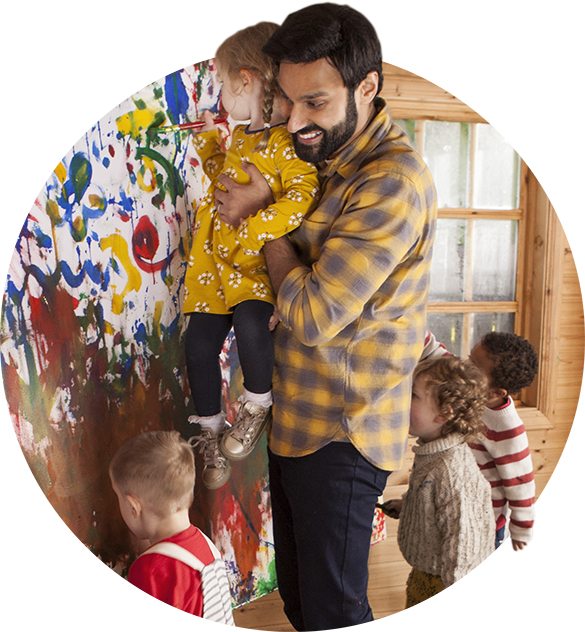Training Info
Info on qualifications and funding for Early Learning and Childcare careers.

Starting your career with training
Getting formal qualifications in Early Learning and Childcare is a great way to gain confidence and practical experience. Choosing which qualification to go for depends on where you live as well as what your personal circumstances and goals are.
If you can’t commit to a full-time course, it would be worth checking if your local college offers part-time or evening study. And if you live in a rural location there are options to study remotely. Training providers such as the University of the Highlands and Islands, and others, offer distance learning.
Ways to study
There are various qualifications you can take before getting a job in childcare, search online for the following qualifications to see what’s available near you:

Courses to become a Support Worker
(These usually take around 12 months to complete)
- NC in Early Education and Childcare (SCQF Level 6)
- SVQ Social Services (Children and Young People) (SCQF Level 6)

Courses to become a Practitioner
(These usually take around 12 months to complete)
- HNC in Childhood Practice (SCQF Level 7)
- SVQ Social Services (Children and Young People) (SCQF Level 7) (Part-time)

Courses to become a Manager/Lead Practitioner
- BA Hons Childhood Practice (4 year course)
- BA Childhood Practice (3 year course)
- Graduate Diploma Childhood Practice (1 year course)
- SQA Professional Development Award Childhood Practice (1 year course)
- PgDip in Childhood Practice (1 year course)
- MEd Childhood Practice – usually completed once you’re working at Manager/Lead Practitioner level (1 year course)
- Graduate Apprenticeships are now available for Early Learning and Childcare
There are jobs in Early Learning and Childcare being created all over Scotland.
Training on the job
There are also opportunities to join Modern Apprenticeship schemes or to train on the job. So, for example, you could get a job in Early Learning and Childcare and then study with a training provider for a part of your week.
Qualifications you could achieve while working:
- SVQ in Social Services (Children and Young People) (SCQF Level 6 or 7)

Get a taste for a career in childcare
If you’re over 25 and are unemployed or have been made redundant, you may be considering a change of career. A taster programme in childcare is available to introduce you to the sector, and to help you develop the skills needed to help young children grow and learn.
The programme is designed to prepare candidates to enter the world of work in the childcare sector. You’ll develop your employability skills to prepare you for applying for jobs or further training.
You could gain a certified qualification at the end of the course, and you’ll be ready to progress your career in childcare.
For more information, call 0800 917 8000 or speak to your DWP Work Coach.

Gain industry experience and qualification at school
Foundation Apprenticeships offer pupils in S5 and S6 the chance to gain work experience and an industry-led qualification in Early Learning and Childcare.
The Foundation Apprenticeship prepares you for a wide range of different Early Learning and Childcare roles, including; nanny, nursery worker or childminder. You will also learn to organise fun activities as a playworker, to help children build their self-esteem. Or, give children and their families vital support as a care worker.
Completing a Foundation Apprenticeship can fast track you into a Modern Apprenticeship and counts towards entry into all colleges and universities in Scotland.
Find more information and see what’s available in your area.

Scottish Social Services Council can help you get into ELC
There are lots of routes into ELC and on top of that, there’s no set career path. To find out what a career in childcare could look like for you visit the Scottish Social Services webpages. To see if your existing qualifications or experience could help please consult our Early Learning and Childcare, recognition of prior learning tool.
Full time college or university course
Gain higher level of qualifications in a shorter time
Study a subject you enjoy in depth
Could enter the workplace on a higher salary
Involves lots of work based placements and practice
You don’t get paid to go to college (but you could be eligible for funding)
Might be tricky to fit around family life (if applicable)
Colleges might not be local to where you live
Modern Apprenticeships and training on the job
You start working in a nursery immediately
Paid a wage straight away
Gain qualifications while you work
Might start in a lower position
Entry level salary is sometimes lower if you have no qualifications
Can be challenging to study and work at the same time (but there is lots of support out there)
Funding
If you’re thinking about studying, you’ll need to consider how you will pay for:
- Tuition fees
- Living costs (e.g. food, travel, accommodation, etc.)

How you pay for tuition fees:
- Fee waiver
- SAAS
- Home or International Tuition Fees
Most Scottish full-time students will not have to pay tuition fees. You don’t have to apply for this as your eligibility will be considered automatically at enrolment. After the UK has left the EU, students from those territories may have to pay tuition fees.

How you pay for living costs:
- Bursary
- Educational Maintenance Allowance
- Childcare funding (to cover your own costs of childcare)
- Discretionary funding (to help with living costs)
Once you have selected a college, you can ask student services to give you advice on which funding you’re eligible for.

Recognised Prior Learning:
Recognised Prior Learning (RPL), is a way of using your skills and knowledge, gained through experience and formal training and learning, towards a recognised qualification. This chart shows how the RPL process may allow you to utilise your existing skills and knowledge.